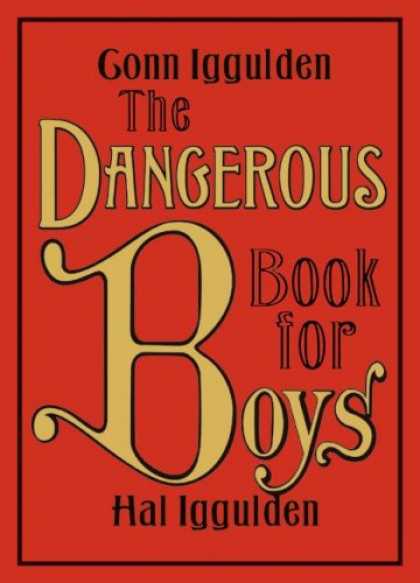 In case you missed the news, an IR scholar was last week suspended from the University of Nottingham for the paper he delivered at the BISA Conference in April. Dr Rod Thornton works and teaches on terrorism, war and counter-insurgency and had apparently written up an analysis of the 2008 ‘extremism’ false alarm at Nottingham for the purposes of exploring how universities and the state go about dealing with students and their research interests.
In case you missed the news, an IR scholar was last week suspended from the University of Nottingham for the paper he delivered at the BISA Conference in April. Dr Rod Thornton works and teaches on terrorism, war and counter-insurgency and had apparently written up an analysis of the 2008 ‘extremism’ false alarm at Nottingham for the purposes of exploring how universities and the state go about dealing with students and their research interests.
Following complaints from others at Nottingham, BISA yanked the paper from the online system, so comment on Dr Thornton’s claims is moot. The academic freedom issues at stake are, however, very much alive. Particularly of interest are the grounds on which Nottingham have sought to defend their decisions, both in the initial case and in dealing with Thornton’s internal dissension:
[Academic] freedom is the freedom to question, to criticise, to put forward unpopular ideas and views – it is not the freedom to defame your co-workers and attempt to destroy their reputations as honest, fair and reasonable individuals.
It is important to remember that the original incident, almost three years ago, was triggered by the discovery of an al-Qaida training manual on the computer of an individual who was neither an academic member of staff, nor a student, and in a school where one would not expect to find such material being used for research purposes.
This is disingenuous at several levels. First, the document was discovered on the computer of Hicham Yezza, who worked at Nottingham and had been both a student and Student Union exec member there. The spokesperson’s phrasing implies that his status was suspicious by relying on a sleight-of-hand between academic and non-academic staff (one which could hardly be substantiated as meaningful in a context where academics regularly email documents to ‘support’ staff).
Second, the location of the document is elided with the legitimacy of possessing it. Rizwaan Sabir sent the document (wholly legal and freely available from multiple sources by the way) to Yezza to print. They were friends. Sabir was most certainly a student and most certainly in a school where one would expect to find such material used for research. Apart from the fact that he is now a PhD student at Strathclyde working on counter-terrorism, at the time he was not only a Masters student, but was also being supervised by Thornton, who was not consulted by the University about the situation before the police were called in.
Third, the question of ‘defamation’ is surely an open one at this point. Perhaps Thornton said some particularly nasty things, but there is a prima facie case to suggest that Nottingham mishandled (at best) this entire episode, so it would be a surprise if there weren’t legitimate criticisms to be made of actual people (the leaked details of Thornton’s paper seem very mild indeed). The general approach to ‘vetting’ documentation certainly seems rather damning, especially considering that those doing the authorising of teaching materials appear to have less academic expertise in the area than those preparing the reading lists in the first place.
Obviously, no grand conclusions are possible from this one case, and it will be interesting to see how Nottingham reacts to the backlash. In terms of academic autonomy, it cannot be right for the reputational concerns of a university – increasingly expressed in terms of corporate brand identities that conceptualise staff as sales people – to trump the ability to openly discuss issues directly relevant to the academic study of counter-terrorism in fora specifically set aside for that purpose (by the way, for those who don’t know, BISA insists that you upload the full papers of material you intend to present, so Thornton was just following the rules in the first place).
Moreover, the academic soft kettle should be consciously resisted. It is not up to either managers or other academics to determine which research materials constitute legitimate objects of analysis, and which fall under the rubric of danger and subversion, still less for them to act as the forward intelligence units for state power without even bothering to consult their very own internal experts. The space for intelligent discussion and inquiry is quite restricted enough as it is without the marginal spaces of higher learning having to be brought within the rubric of thought crime.
UPDATE (10 May): There’s a letter today in The Guardian militating for Thornton’s reinstatement. In their finite wisdom the Guardian sub-editors have titled it ‘Calls to reinstate terror academic’, which seems a bit perverse. But hey, it’s their rag. The letter also adds some more detail about Thornton’s original claims:
Dr Thornton carefully details what appear to be examples of serious misconduct from senior university management over the arrest of two university members (The “Nottingham Two”) under the Terrorism Act 2000 in May 2008.The two men were never charged with a terrorism-related offence, and their arrests were perceived as being indicative of a growing tide of Islamophobia. Dr Thornton’s research paper provides apparent confirmation, notably through internal communications obtained via the Freedom of Information and Data Protection Acts, that university management and senior academics colluded to paint the two men in a negative light despite no evidence of wrongdoing.
An independent inquiry is called for. Watch that space.
Pingback: The Poisonous Drivel of Dr Denis MacShane MP « The Disorder Of Things
Pingback: Administrative Offences; Or, In Terrorem, University of Nottingham Branch (The Sequel) « The Disorder Of Things